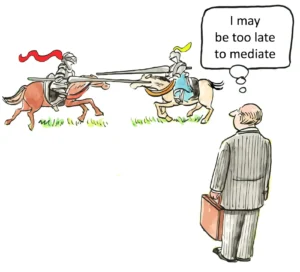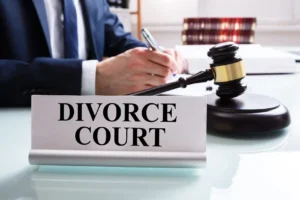Criminal Appeals Process: Fighting a Wrongful Conviction
The criminal appeals process serves as a crucial safeguard within the justice system, offering individuals who believe they have been wrongfully convicted a chance to challenge their conviction or sentence. This complex legal procedure is designed to identify and rectify errors that may have occurred during the original trial, ensuring that justice is served and constitutional rights are protected. For those facing the daunting prospect of a wrongful conviction, understanding the intricacies of the appeals process is paramount to mounting an effective challenge and potentially overturning an unjust verdict.
At its core, a criminal appeal is not a retrial of the case but rather a review of the legal proceedings that led to the conviction. The appellate court examines the trial record, looking for legal errors that may have significantly impacted the outcome. These errors can range from improper jury instructions to the admission of inadmissible evidence, or even instances of prosecutorial misconduct. It’s important to note that new evidence is generally not considered during an appeal; instead, the focus is on whether the original trial was conducted fairly and in accordance with the law.
The journey through the appeals process begins immediately after a conviction, with strict timelines that must be adhered to. In most jurisdictions, a notice of appeal must be filed within a short period following the sentencing, typically 30 days for misdemeanors and 60 days for felonies. This initial step is crucial, as failing to file within the prescribed timeframe can result in the loss of the right to appeal. Once the notice is filed, the appellant’s attorney begins the meticulous process of reviewing the trial record, identifying potential grounds for appeal, and crafting persuasive legal arguments to present to the appellate court.
One of the most critical aspects of the appeals process is the preparation of the appellate brief. This document serves as the primary vehicle for presenting the appellant’s arguments to the court. It requires a thorough analysis of the trial record, relevant case law, and statutory provisions. The brief must articulate clearly and convincingly how specific legal errors occurred during the trial and how these errors prejudiced the defendant’s case. Crafting an effective appellate brief is a skill that demands not only a deep understanding of the law but also the ability to construct compelling narratives that resonate with appellate judges.
Following the submission of the appellant’s brief, the prosecution has the opportunity to respond with their own brief, defending the conviction and addressing the arguments raised by the appellant. This back-and-forth exchange of legal arguments forms the foundation of the appellate review process. In some cases, the appellate court may request oral arguments, allowing attorneys from both sides to present their positions directly to the judges and respond to any questions or concerns the court may have.
The scope of review in a criminal appeal is generally limited to issues that were properly preserved during the trial. This means that objections must have been raised and rulings made on the record for those issues to be considered on appeal. This underscores the importance of having skilled trial counsel who can identify and properly preserve potential appellate issues during the original proceedings. However, there are exceptions to this rule, such as instances of plain error or when the error involves a fundamental constitutional right.
One of the most common grounds for appeal is the claim of ineffective assistance of counsel. This argument asserts that the defendant’s trial attorney failed to provide competent representation, thereby depriving the defendant of their Sixth Amendment right to effective counsel. To succeed on this claim, the appellant must demonstrate not only that their attorney’s performance fell below an objective standard of reasonableness but also that this deficient performance prejudiced the outcome of the trial. This is a high bar to meet, as courts generally presume that attorneys acted competently, and the appellant must overcome this presumption with clear and convincing evidence.
Another frequent basis for appeal is the improper admission or exclusion of evidence. Trial judges have considerable discretion in making evidentiary rulings, but these decisions must be based on sound legal principles. If a judge erroneously admits prejudicial evidence that should have been excluded or excludes critical evidence that should have been admitted, it can form the basis for a successful appeal. This is particularly true if the appellate court determines that the evidentiary error significantly impacted the jury’s verdict.
Prosecutorial misconduct is another serious issue that can lead to a successful appeal. This can include actions such as making improper statements during closing arguments, withholding exculpatory evidence in violation of Brady v. Maryland, or engaging in discriminatory jury selection practices. When such misconduct occurs, it can undermine the fundamental fairness of the trial and may warrant a reversal of the conviction or a new trial.
The standard of review applied by appellate courts varies depending on the nature of the error being alleged. For questions of law, such as the interpretation of a statute or the constitutionality of a law, appellate courts typically apply a de novo standard, meaning they review the issue anew without deferring to the trial court’s decision. For factual findings, however, appellate courts generally apply a more deferential standard, only overturning the trial court’s determinations if they are clearly erroneous. Understanding these standards is crucial for appellate attorneys as they frame their arguments and for appellants as they assess the likelihood of success on appeal.
It’s important to recognize that the appeals process can be lengthy and complex. Depending on the jurisdiction and the specific issues involved, it can take months or even years for an appeal to be resolved. During this time, the appellant may remain incarcerated unless they are granted bail pending appeal, which is relatively rare in criminal cases. This underscores the importance of having a dedicated and experienced appellate attorney who can navigate the process efficiently and effectively.
The outcome of a criminal appeal can take several forms. The appellate court may affirm the conviction, finding no reversible error in the proceedings. Alternatively, it may reverse the conviction and order a new trial if it determines that significant legal errors occurred that prejudiced the defendant’s right to a fair trial. In some cases, the court may modify the sentence without overturning the conviction. In rare instances, the appellate court may reverse the conviction and order an acquittal if it finds that the evidence presented at trial was legally insufficient to support a guilty verdict.
For those whose direct appeals are unsuccessful, there may still be options available through post-conviction relief proceedings. These can include state habeas corpus petitions or federal habeas corpus petitions under 28 U.S.C. § 2254. These proceedings allow for the consideration of issues that may not have been apparent from the trial record, such as newly discovered evidence or claims of ineffective assistance of counsel that require additional factual development. While these avenues offer hope for some wrongfully convicted individuals, they come with their own set of procedural hurdles and limitations.
The role of DNA evidence in criminal appeals has become increasingly significant in recent years. Advances in forensic technology have made it possible to analyze DNA evidence with greater accuracy and from smaller samples than ever before. This has led to numerous exonerations of wrongfully convicted individuals, often in cases where DNA testing was not available or not as sophisticated at the time of the original trial. Many jurisdictions have enacted laws allowing for post-conviction DNA testing, providing a powerful tool for those seeking to prove their innocence.
Another important aspect of the criminal appeals process is the concept of harmless error. Even if an appellate court finds that an error occurred during the trial, it may still uphold the conviction if it determines that the error was harmless—that is, it did not affect the outcome of the trial. This doctrine recognizes that not every mistake in a trial warrants reversal and seeks to balance the interests of justice with judicial economy. However, certain types of errors, such as structural errors that affect the entire framework of the trial, are considered so fundamental that they require automatic reversal without a showing of prejudice.
The appeals process also plays a crucial role in shaping criminal law and procedure. Appellate court decisions not only affect the case at hand but also establish precedents that guide future trials and appeals. This is particularly true of decisions from state supreme courts and federal circuit courts of appeals. These rulings can clarify ambiguous statutes, establish new constitutional protections, or refine existing legal doctrines. As such, criminal appeals serve not only the interests of individual defendants but also contribute to the ongoing development and refinement of the criminal justice system as a whole.
For those facing a wrongful conviction, the appeals process offers a glimmer of hope, but it’s not without its challenges. One of the most significant hurdles is the presumption of correctness that appellate courts afford to trial court decisions. This means that the burden is on the appellant to demonstrate that an error occurred and that it was sufficiently serious to warrant reversal. Overcoming this presumption requires meticulous preparation, compelling legal arguments, and often, a bit of luck.
The importance of preserving issues for appeal cannot be overstated. Trial attorneys must be vigilant in raising objections and making offers of proof to ensure that potential appellate issues are properly preserved in the record. Failure to do so can result in these issues being deemed waived on appeal, significantly limiting the grounds on which a conviction can be challenged. This underscores the need for a comprehensive defense strategy that considers not only the immediate trial but also potential appellate issues.
In recent years, there has been growing recognition of the phenomenon of wrongful convictions and the factors that contribute to them. This has led to the establishment of innocence projects and conviction integrity units within prosecutors’ offices, dedicated to investigating claims of actual innocence. While these initiatives operate outside the traditional appeals process, they can work in tandem with appellate efforts to identify and rectify miscarriages of justice.
The role of technology in the appeals process is evolving rapidly. Electronic filing systems, digital case management tools, and AI-powered legal research platforms are streamlining many aspects of appellate practice. These technological advancements are making it easier for attorneys to access and analyze vast amounts of legal information, potentially uncovering novel arguments or overlooked precedents that could be crucial to an appeal’s success.
As the criminal justice system continues to evolve, so too does the appeals process. There is ongoing debate about how to balance the need for finality in criminal proceedings with the imperative to correct wrongful convictions. Some jurisdictions are exploring reforms such as expanding the grounds for post-conviction relief or creating specialized courts to handle certain types of appeals. These discussions reflect a growing awareness of the fallibility of the criminal justice system and the need for robust mechanisms to address errors and injustices.
The psychological toll of the appeals process on defendants and their families cannot be overlooked. The uncertainty, the prolonged legal battles, and the emotional roller coaster of hope and disappointment can be incredibly taxing. Support systems, including mental health resources and advocacy groups for the wrongfully convicted, play a crucial role in helping individuals and their loved ones navigate this challenging journey.
In conclusion, the criminal appeals process stands as a vital safeguard against wrongful convictions, offering a pathway to justice for those who have been unfairly convicted. While it is a complex and often arduous journey, it remains an essential component of a fair and just legal system. For those facing the daunting prospect of challenging a conviction, understanding the intricacies of the appeals process, securing skilled legal representation, and maintaining perseverance in the face of adversity are key to navigating this critical phase of the criminal justice system. As society continues to grapple with issues of justice and fairness, the appeals process will undoubtedly remain at the forefront of efforts to ensure that the rights of the accused are protected and that justice is served.
Sources:
- https://www.criminallawaz.com/navigating-the-appeals-process-in-criminal-cases/
- https://www.mosserappeals.com/the-appeals-process/winning-an-appeal/
- https://www.brodenmickelsen.com/blog/legal-grounds-for-filing-a-criminal-appeal/
- https://www.findlaw.com/criminal/criminal-procedure/the-basis-for-a-criminal-appeal.html
- https://www.grabellaw.com/appeals-glossary-of-terms.html
- https://theappellatelawfirm.com/blog/wrongfully-convicted-the-steps-to-appeal-a-criminal-conviction/
- https://www.silvalegal.com/criminal-appeals-explaining-the-process-of-appealing-a-criminal-conviction/
- https://law.asu.edu/sites/default/files/pdf/academy_for_justice/12_Reforming-Criminal-Justice_Vol_3_Appeals.pdf




















